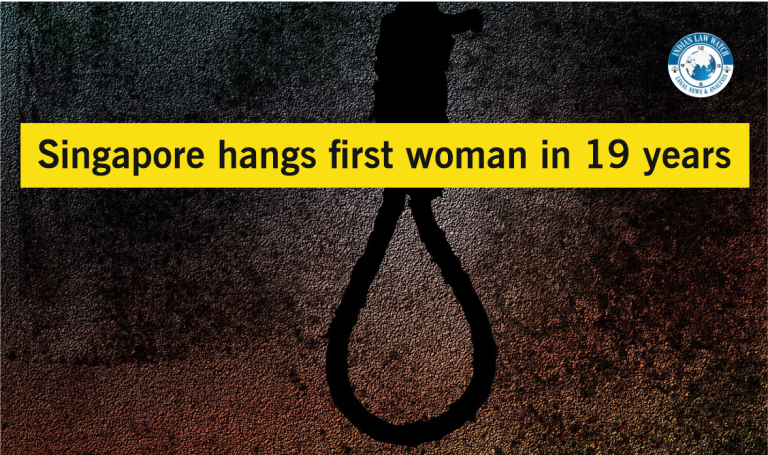Madan B. Lokur appointed for another term in Supreme court of Fiji in Visiting Judges Panel

The President of Fiji has reappointed Justice Madan B. Lokur — a former judge of the Supreme Court of India — as a judge of the visiting panel of the Supreme Court of Fiji.
The order, dated 5 January, stated that the President, “acting upon the recommendation of the Judicial Services Commission and the endorsement of the Attorney-General has reappointed Justice Lokur for a term of three (3) years with effect from 21st January 2022”
 Fijian judiciary is unique for inviting judges from external jurisdictions it is also called Hybrid Constitutional Court in various literature. Justice Lokur, who served on the Supreme Court of India from 2012 to 2018, was first sworn to Fiji’s apex court in August 2019 for three years.
Fijian judiciary is unique for inviting judges from external jurisdictions it is also called Hybrid Constitutional Court in various literature. Justice Lokur, who served on the Supreme Court of India from 2012 to 2018, was first sworn to Fiji’s apex court in August 2019 for three years.
Appointment of judges from various jurisdiction has been the case since inception with Fijian judiciary however Former Indian judge was the first Indian judge to be appointed to the apex court of another country.
On 15 July 2019, former Supreme Court Justice A.K. Sikri was appointed as an ad-hoc judge of the Singapore International Commercial Court.
 The Supreme Court is the final appeal court in Fiji. It has exclusive jurisdiction, subject to such requirements as may be prescribed, as and when the need arises to hear and determine appeals from the Court of Appeal. It has the power to review, vary, set aside, or affirm decisions or orders from the Court of Appeal and may make such orders (including an order for a new trial and an order for an award of costs) as are necessary for the administration of justice. The Supreme Court may review any judgment, pronouncement, or order made by it. It has the original jurisdiction to hear and determine constitutional questions referred under Section 91(5) of the Constitution.
The Supreme Court is the final appeal court in Fiji. It has exclusive jurisdiction, subject to such requirements as may be prescribed, as and when the need arises to hear and determine appeals from the Court of Appeal. It has the power to review, vary, set aside, or affirm decisions or orders from the Court of Appeal and may make such orders (including an order for a new trial and an order for an award of costs) as are necessary for the administration of justice. The Supreme Court may review any judgment, pronouncement, or order made by it. It has the original jurisdiction to hear and determine constitutional questions referred under Section 91(5) of the Constitution.
In all proceedings before the Supreme Court, questions are determined according to the opinion of the majority. Its decisions are binding on all the Courts of the State.
Composition of the Court
Pursuant to the Constitution of the Republic of Fiji; the Supreme Court consists of:
- The Chief Justice, who is also the President of the Supreme Court.
- Judges appointed as Judges of the Supreme Court.
- Justices of Appeal, and
- Puisne Judges of the High Court
Visiting Judges of Fiji Supreme Court
- Hon. Acting Chief Justice – Mr. Justice Kamal Kumar: Justice Kamal Kumar acquired his Bachelor of Law from Queensland University of Technology, Australia in 1999. That same year, he was admitted as a barrister to the High Court of Australia and the Supreme Court of Queensland. From 2000 to May 2013, he was a lawyer at Young & Associates, Solicitors, Lautoka, Fiji. He became a judge in the High Court of Fiji (Civil Division) from May 2013 to 7 April 2019. He has been serving as Acting Chief Justice since 8 April 2019.
- Hon. Mr. Justice Saleem Marsoof (Sri Lanka)
- Hon. Madam Justice Chandra Ekanayake (Sri Lanka)
- Hon. Mr. Justice Priyantha Jayawardena (Sri Lanka)
- Hon. Mr. Justice Buwaneka Aluwihare (Sri Lanka)
- Hon. Mr. Justice Priyasath Dep PC (Sri Lanka)
- Hon. Mr. Justice Brian Keith (England)
- Hon. Mr. Justice Kankani Chitrasiri (Sri Lanka)
- Hon. Mr. Justice Quentin Loh (Singapore)
- Hon. Mr. Justice Frederik Brand
- Hon. Mr. Justice Frank Stock
- Hon. Mr. Justice Madan Lokur (India): Madan B. Lokur from esteemed St. Stephen’s College, University of Delhi and obtained law degree from the same university’s Faculty of Law in 1977. He practised at the Supreme Court of India and the Delhi High Court, and qualified as an advocate-on-record of the Supreme Court in 1981. He was designated a senior advocate in February 1997, before being appointed additional solicitor general of India in July 1998. Justice Lokur was then appointed a judge of the Delhi High Court in 1999, and served there for 11 years, becoming acting Chief Justice for a few months in 2010 before being transferred as Chief Justice of the Gauhati High Court. In 2011, he was appointed Chief Justice of the Andhra Pradesh High Court, and served in that capacity until his elevation to the Supreme Court on 4 June 2012.
Image source: Onmanorma






